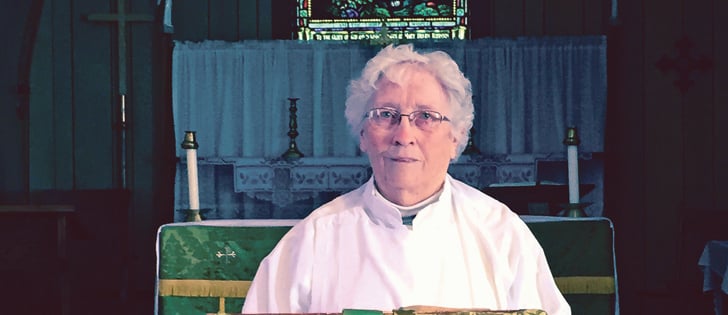Around the middle of the 20th century, when most of the people now of retirement age were being born, things were a lot simpler when it came to religion. You either had it or you didn’t.
If you didn’t or if your brand of religion was different from the norm, you kept it to yourself. Almost everyone went to church regularly and some farmers even took Sundays off.
Today, church attendance has dropped and churches have closed. It’s not unusual for a rural clergy person to serve two or three churches, sometimes in more than one parish. The percentage of Canadians who identify as Catholic has dropped to 39 percent from 47 percent over the last four decades, while Protestant numbers have dropped to 27 percent from 41 percent, according to research from the Pew Research Center’s Forum on Religion & Public Life.
Read Also

Beach or barn? Depends on the retirement plan
Fall is usually when the phone starts to ring and farmers want to talk about succession, transition or sale, says…
But does that mean there is less spirituality, or is there more? And what does that look like in retirement?
A 1971 White House Conference on Aging provided a definition of spirituality that is still relevant today: “Spirituality is the basic value around which all other values are focussed, the central philosophy of life — whether religious, antireligious or nonreligious — which guides a person’s conduct, the supernatural and nonmaterial dimensions of human nature.” (David Moberg).
Other stories in this special feature on post retirement:
- Retired and living at the lake
- There are two of us in this retirement
- Farmers learn to embrace new careers after retirement
Being spiritual may or may not mean being affiliated with a particular religious organization. Statistics Canada tells us 45 percent of older adults who never attend church still engage in personal religious activities.
In his 2006 research, Reginald Bibby a Canadian sociological researcher, found that 77 percent of baby boomer women and 65 percent of men from that same cohort feel they have spiritual needs. Forty-two percent of boomer women and 27 percent of boomer men said that spirituality is “very important” to them.
And as they age, it would appear to become more important with 83 percent of men and women saying their interest in spirituality has stayed the same or increased over the past 10 years.
Retirement can be a time of spiritual re-examination, said Jennifer Irving, a United Church minister from Kelvington, Sask., on extended sabbatical.
“There’s more time for reflection and I think not so much it’s a new thought, but it’s a thought you didn’t have time to entertain before but now you do. It’s like, my inner voice has been telling me this for a long time; let me explore it a little bit.
“Do retirees think more of their mortality? I don’t know. They definitely try not to,” she said. “My dad refuses to retire because of that very issue and I think a lot of farmers do that because that’s what been modelled for them, I guess.
“One of the other things that comes with age is moving away from caring so much what others think,” she added.
“That frees you up to say, ‘I don’t have to go to church any more. I don’t care if so and so down the street thinks I should be going or that’s what I’ve been told is good for me. I want to explore Buddhism now.’ That’s what comes from age and wisdom.”
Some may go deeper in the faith they’ve been affiliated with their whole lives.
Alvena Oryszczyn, a retired farmer and teacher from Lintlaw, Sask., said she has never known a time when she wasn’t connected spiritually.
“My parents instilled values in us as we were growing up. I never had a mountain top experience of being saved or anything, but it’s always been a part of my life.”
Her faith sustained her when her husband died a year after she retired from teaching. She managed the farm consisting of a Hereford herd and crop land, while renting out some of the crop land.
About nine years ago, after her hired man died, she sold the cattle and rented out the remainder of the land.
She is now officially retired.
Besides daily prayer and Bible study, she serves as lay pastor at her church two weeks out of every month.
“Teaching and farming to me were both professions that required a lot of spirituality and a lot of faith,” she said.
“Dealing with children, you need to set a good example and you have to have a lot of faith when you put that seed in the ground that God’s going to give you the sun and the rain you need.”
Her spirituality is different now than when she was younger, she said.
“I have more of an understanding of it. When I was younger, I just sort of accepted it. But as I got older and did more reading and studying, I developed a deeper understanding of a lot of the beliefs I had grown up with.”
Can spirituality help you live longer?
Spirituality offers various benefits at any age. These can include a greater sense of purpose, a greater sense of well being and reduced stress.
Spiritual people have a more positive outlook, which in turn contributes to health and longevity. Gallup polls show that the very religious have the lowest reported rates of depression and countries in which religion is strong have lower suicide rates.
According to Gallup’s 2008-09 Health Index, the very religious are less likely to smoke and more likely to eat healthy and exercise regularly.
The social connection provided by organized religion is also beneficial. Not only does it provide emotional and moral support,but socializing keeps our brains healthy. And, at least one study shows that spirituality may help us to live longer.
Giancarlo Lucchetti was lead author of a study that compared spirituality and religiousness to other health interventions. The study found that people with strong spiritual lives had an 18 percent reduction in mortality.
Lucchetti postulated that the benefits could be compared to eating a high amount of fruit and vegetables or taking blood pressure medication.















